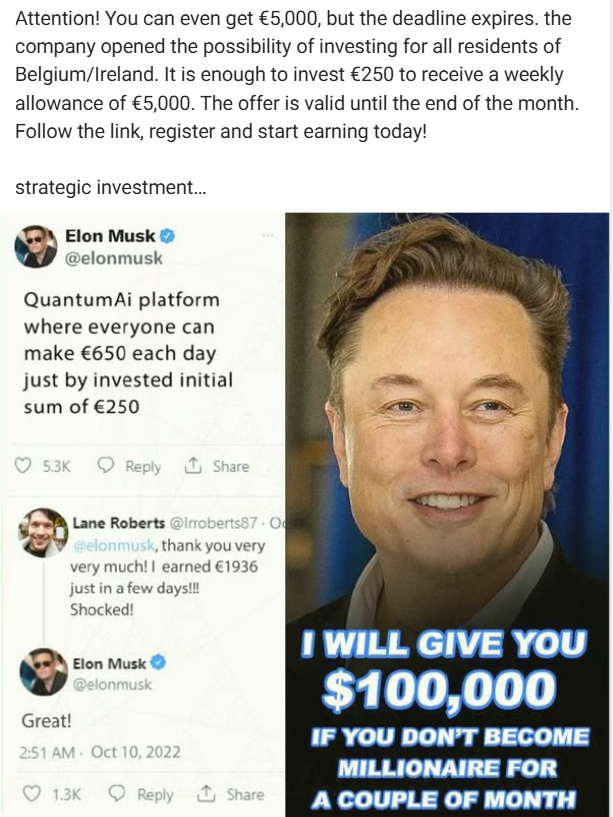
Get tech confident for less
Solve your tech issues and get expert buying advice by chatting to our support team as often as you need. From only £4.99 a month.
Join Which? Tech SupportCancel any time

Last year, Which? exposed a global financial scam called Quantum AI, which impersonated celebs to lure unsuspecting victims into dodgy investment schemes.
Our Which? Tech investigation last year found that Quantum AI is a global scam that uses AI to impersonate celebrities and organisations, including the BBC, Elon Musk and David Beckham, to promote an investment scheme.
The scam has reappeared in recent weeks and Which? has found 12 adverts posted on Facebook and Instagram promoting Quantum AI.
Below, we take a look at these dodgy ads and explain how to avoid investment scams.

Solve your tech issues and get expert buying advice by chatting to our support team as often as you need. From only £4.99 a month.
Join Which? Tech SupportCancel any time

One of the adverts we came across presented an automation service that claimed to be able to mimic the trading styles of professionals. It promoted this as ‘letting AI handle the market for you’.
We looked into the Facebook page behind the advert, which was recently created and was full of posts advertising the ability to make passive income. It also claimed the business was located in a London-based office building.
The website linked to the advert was registered in the same month and featured links to Telegram and WhatsApp channels.

Another advert we discovered used Elon Musk’s image and included fake tweets from Musk promoting the opportunity for Quantum AI users to earn hundreds of euros a day.
The advert prompted you to follow a dodgy link by giving you a short deadline to receive a weekly allowance of €5,000 after investing only €250. We traced the image of Musk used in the advertisement back to several other places on the internet, including its use to advertise other scams.
We found that the ad was posted from a Ukraine-based Facebook account and the posts on the page were unrelated to finance and trading. At the time of writing this, the website linked to the advert was not live. We reported all 12 adverts to Meta using its in-platform reporting tool.
Quantum AI has several websites linked to it, and there are multiple Trustpilot reviews for each of them.
Recent reviewers claimed that the scam impersonated Martin Lewis, Richard Branson, Jeremy Clarkson and Keir Starmer, as well as This Morning, to promote the financial scheme.
Frustrated reviewers also complained of being ‘hounded relentlessly’ by calls from different numbers and not being able to make withdrawals on investments.
Our emails will alert you to scams doing the rounds, and provide practical advice to keep you one step ahead of fraudsters.
Sign up for scam alerts
An advert or post on social media may be part of a scam if:
The Financial Conduct Authority issued a warning about Quantum AI, stating that it may be providing or promoting financial services or products without its permission.
It has a register that lists financial firms authorised to operate in the UK. It's best to avoid firms that aren't on this list.
On social media, you can report posts by selecting the three dots in the top-right corner of the post and pressing 'report'.
Suspicious websites can be reported to the National Cyber Security Centre.
If you've fallen victim to a text scam, you can report it to Action Fraud or the police if you live in Scotland.